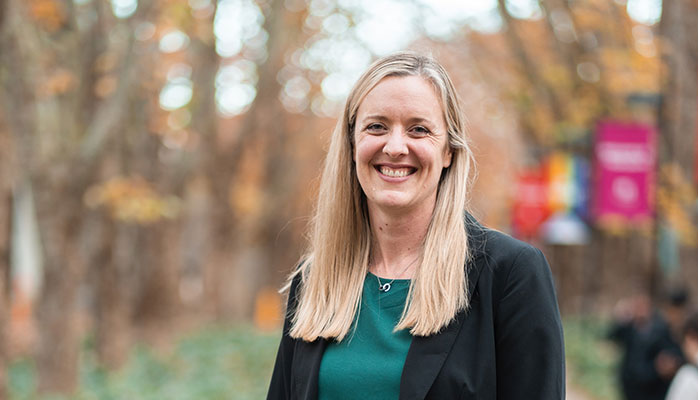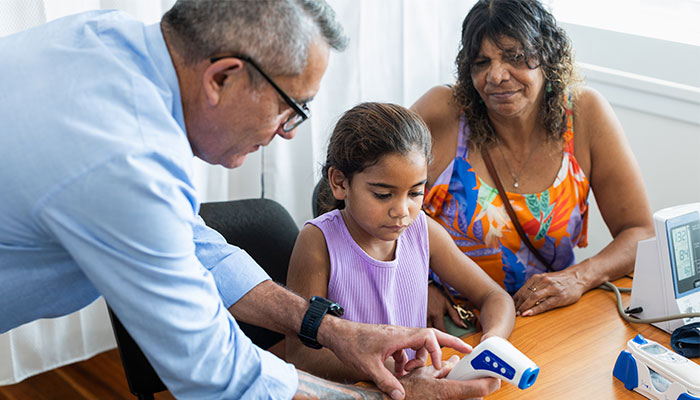Studies show that as many as one in three people have a significant fear of public speaking and some are even more afraid of it than death, says Associate Professor Carly Johnco from the Macquarie University Lifespan Health and Wellbeing Research Centre.

Anxiety about public speaking can be crippling and affect people’s careers because many of us are required to give presentations at work. It can also affect our relationships. Who needs the pressure and angst that comes when somebody who hates public speaking is asked to give a speech at a wedding or another family celebration?
If this is you, help is available. Associate Professor Johnco says exposure therapy - summoning the courage to face the fear head-on - helps reduce anxiety about speaking in front of an audience.
In a new paper published in the Journal of Consulting and Clinical Psychology, Associate Professor Johnco and colleagues tested the effect of exposure-focused cognitive behavioural therapy to help people overcome fear of public speaking.
“Avoiding public speaking actually makes our anxiety worse in the long run. Facing our fears gives us the opportunity to overcome our fears and to learn that things usually aren’t as bad as we expect them to be,” says Associate Professor Johnco.
So if you are someone who breaks into a sweat at the thought of speaking in public, but you’re ready to face your fears, how should you proceed?
Change your thoughts, change your experience
As part of the study, a group of 249 people who felt moderate to severe anxiety about public speaking were recruited.
The researchers divided the participants into three groups who learned to face their fears in different ways to find out which was most effective. Each group would try a different therapy to help them complete a series of increasingly tough public speaking assignments.
The research culminated in participants being required to give a ten-minute speech before an audience, on a topic chosen out of a hat, without any preparation time.
The first group tried a simple approach. They practiced giving speeches in private before they went in front of an audience. This method was found to be beneficial, but not as good as the approaches taken for the second and third groups where therapists worked with the participants to help reshape their thinking.
Before they gave their speeches, participants in the second group were asked to describe their specific fears. For example, were they afraid that the audience would laugh at them, or that their anxiety would be so intense that they couldn’t handle it?
Then, before making the speech, they were asked a range of questions to help them reassess how likely those bad outcomes were and, if the worst were to happen, to consider how they would cope. This allowed them to feel more confident before actually giving their speech.
- Illness invalidation harmful to patients with chronic conditions: new study
- Explainer: Do women sleep differently to men?
The third group received the most therapeutic benefit. Not only were they asked to describe their specific fears, but they treated each speech like an experiment - to test whether their worst fears came true. After they delivered their speech, participants were asked to reflect on what happened and whether their fears were justified.
“Usually, it's not as bad as they expect and that was a big surprise. That can be a really powerful learning experience to help people reshape their beliefs about public speaking based on those real-life experiences,” says Associate Professor Johnco.

Facing fear: Associate Professor Carly Johnco, pictured, tested the success of exposure therapy as a way to reduce anxiety in people afraid of public speaking.
The third group’s method proved to be more effective than the second group’s, but not by much. The important finding, says Associate Professor Johnco, is that the two groups which were focused on changing the way they thought about public speaking did better than the group that just practiced doing speeches.
“It's not just about doing it. It's about making sure we're focusing on what we're learning by facing our fears,” she says.
Carly Johnco is an Associate Professor in the School of Psychological Sciences, the Lifespan Health and Wellbeing Research Centre and the Macquarie University Hearing Research Centre.



